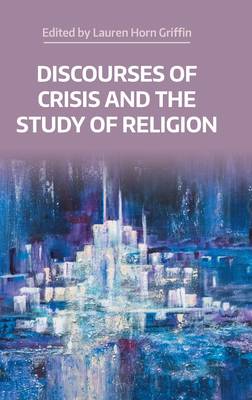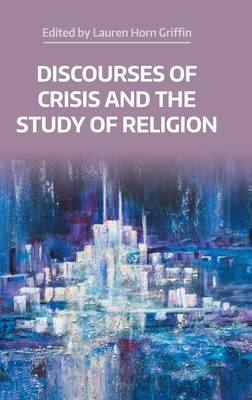
- Retrait gratuit dans votre magasin Club
- 7.000.000 titres dans notre catalogue
- Payer en toute sécurité
- Toujours un magasin près de chez vous
- Retrait gratuit dans votre magasin Club
- 7.000.0000 titres dans notre catalogue
- Payer en toute sécurité
- Toujours un magasin près de chez vous
Discourses of Crisis and the Study of Religion
161,45 €
+ 322 points
Description
Since the beginning of the COVID-19 pandemic, the 2020s have been consistently framed as a time crisis. Rather than take this at face value, asking how religious people may handle a crisis or what religion can offer people who feel they are in crisis, this volume asks what happens when we classify something as a crisis, and what is at stake in linking these "crises" to "religion." Discourses of Crisis and the Study of Religion highlights how these terms and categories, though seemingly self-evident, serve particular social and political ends. After an opening section that explores the deployment of crisis rhetoric in various aspects of higher education, this volume structures the critical approach to the category of crisis through four distinct sections: Language, Lexicon, Locus, and Locution. The section on language examines the various rhetorical and theoretical frameworks for "crisis." The third section, Lexicon, considers the question of method in the study of religion, interrogating the ways in which perceived crises mark shifts in how we do our work. The section on locus takes up the concept of data for religion and crisis, analyzing examples of how the construction of "crisis" can force moments of decision, adaptation, and reaction. Examples compare instances from North America, Brazil, Mexico, and Russia. The final section, Locution, brings together senior scholars to assess recent approaches to "the role of religion in crisis" and offers alternatives to that framework in the field of religious studies. The volume concludes with an epilogue reflecting on how scholars themselves theorize (or choose not to theorize) crises in regard to their own lives. This volume, focusing on discourses of crisis during a time that is constantly mediated as "in crisis," shows us ways of doing religious studies that are up to the challenge of reflecting on the problems, strategies, and political structures through which we construct our social worlds.
Spécifications
Parties prenantes
- Editeur:
Contenu
- Nombre de pages :
- 240
- Langue:
- Anglais
- Collection :
Caractéristiques
- EAN:
- 9781800505308
- Date de parution :
- 01-02-25
- Format:
- Livre relié
- Format numérique:
- Genaaid
- Dimensions :
- 156 mm x 234 mm
- Poids :
- 589 g

Les avis
Nous publions uniquement les avis qui respectent les conditions requises. Consultez nos conditions pour les avis.





